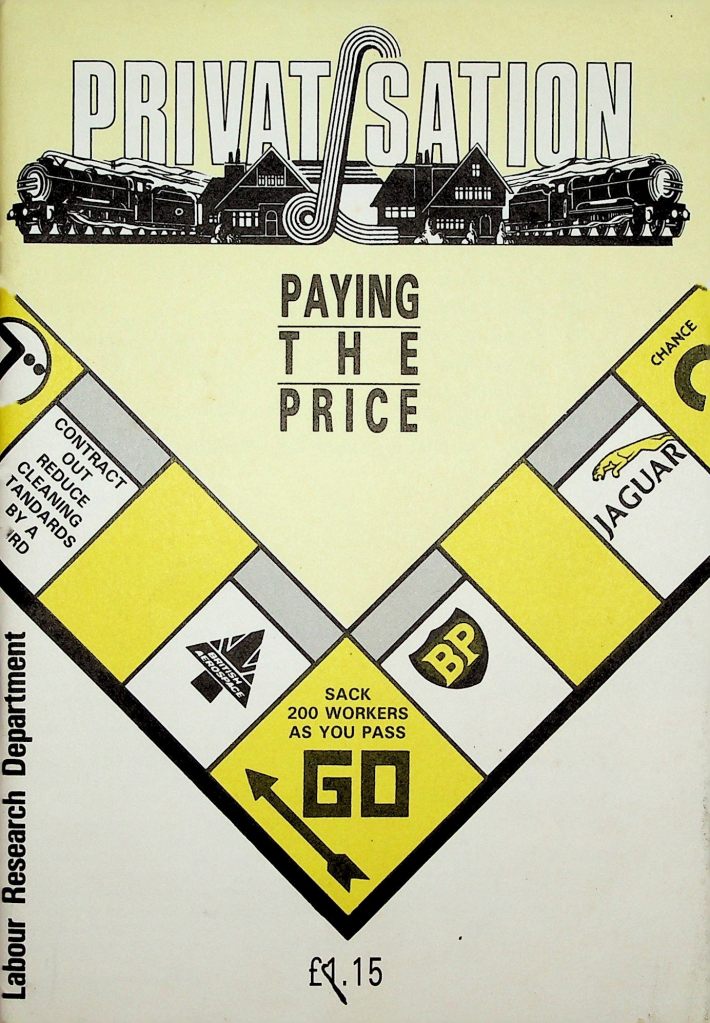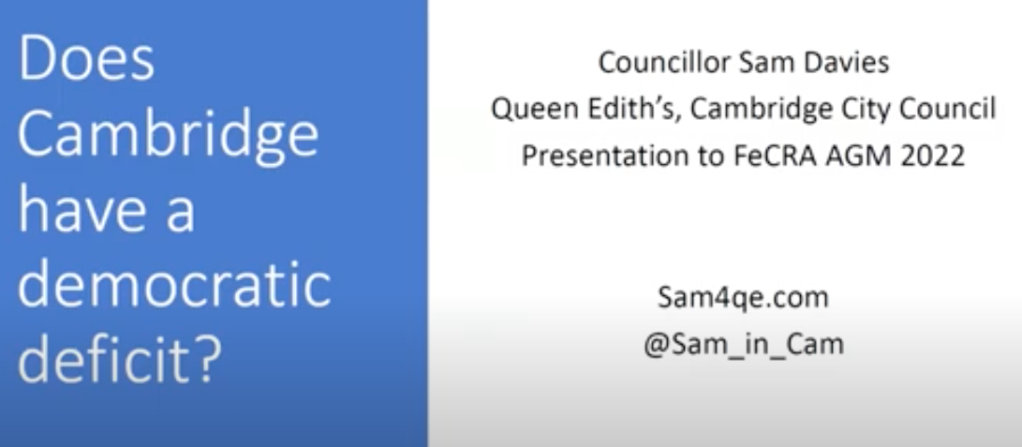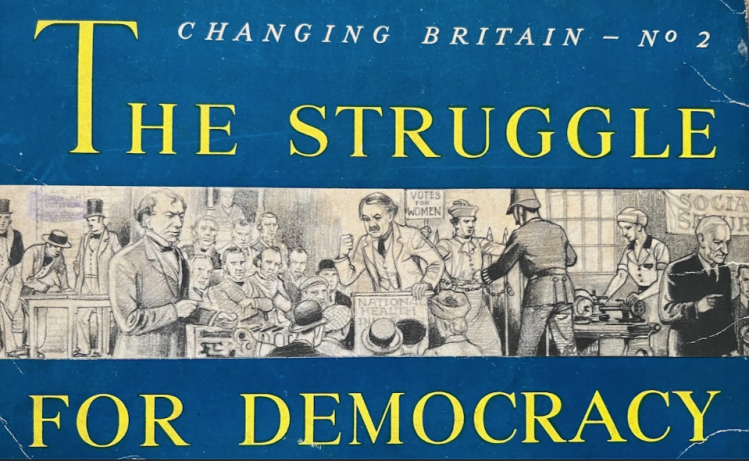You can see the playlist of videos I’ve edited and produced here at the hustings organised by the Friends of the River Cam, and the Federation of Cambridge Residents’ Associations on 19 June 2024. I was commissioned by the latter to film and produce the videos.
For those of you who want to watch the unedited, uninterrupted version, see the video of the livestream from Friends of the Cam here.
Were the candidates able to convince the audience?
I did an exit poll the old-fashioned way, asking people to put a cross in the box that closest-matched their opinion after the event. Phil turned it into a chart below.
Above – data via me, number-crunching and artwork by Phil.
Amongst other things, the results for this event show how many people were positively disposed towards one of the candidates before things had even started – and of those how many may already be members/supporters in the audience. If that was not already apparent with over-enthusiastic clapping by individuals for their respective chosen candidate. But then that’s part of the occasion and dare I say it, the ‘theatre’ of the Political public debate.
If you want the text version, see Phil Rodgers’ thread here or the hashtag #VoteCambridge.
The atmosphere and the mood was different this time around even though the participants and the Chair – Prof Mia Gray of the University of Cambridge, were the same as on 11 June 2024 – see my video playlist of the Climate hustings here.
I felt at this one we started to get into the issues of failing governance structures as well as differences of political and economic philosophy too. Not least the fact that we heard open exchanges about why the huge housing growth had not led to a reduction in house prices, the creation of social housing, and the alleviation of a host of labour and skills shortages – especially in the public sector. However, it will have to be something we come back to after the election when whoever wins the general election has their manifesto put through the civil service machine (that I used to be part of) to see what the policy details are. Because at the moment everything feels so ‘vague’ that it’s very difficult to pin down political parties (in particular Labour) on the specifics. As I noted in an earlier blogpost, Labour’s manifesto contained very few clear geographically-specific commitments. Hence having to wait and see if/when Labour get elected, whether any of the development corporations Sir Keir has spoken about will be designated in/near Cambridge.
The importance of having an audience that knows the basics of how the British State functions. (And malfunctions).
Following the pre-arranged questions, several of the candidates came under pressure from questions put to them that reflected our wider collective lack of knowledge on local and central government. I don’t blame the people asking the questions – the way politics is framed in the media – and then reframed by too many politicians erroneously for short-term gain results in the wider public thinking individual MPs are responsible for more things than they actually are. One question put to Labour’s Daniel Zeichner – who is re-standing, was the trigger that persuaded me to intervene.
“You have been in power for nine years – there are a growing amount of pot holes…”
For those of you familiar with the essentials of politics, you might wonder how a backbench opposition MP or even a shadow minister in Parliament could have responsibility for repairing local roads. (If you’re interested, see the House of Commons Library’s briefing note on potholes and local road maintenance here) Which enabled me to make my point about understanding how our city functions and malfunctions.
“I’m the prime minister and I’m telling you: If you want to have a street party you go ahead and have one.”
David Cameron – then PM, 20 April 2011
That point about saying things for short-term gain? Of course it would have made him look good to an unsuspecting public about organising street parties for what was the wedding between the now Prince & Princess of Wales. But in law, he was wrong. Because Parliament passed the Road Traffic Regulation Act 1984 and a decade later the Road Traffic Regulation (Special Events) Act 1994 which set out *how* the public can apply to their local highways authority for temporary road closures to enable street parties. (See the Government’s guidance here).
One huge positive from having candidates new to politics and/or new to the city
They get to ask the really basic but essential questions on first principles that are all-too-easily forgotten or overlooked by people working on/covering the issues for years.
Dr Khalid AbuTayyem of the Workers’ Party of Great Britain gave an example of this – one that in Parliament might be easily dismissed by a responding minister. But he put a perfectly valid set of questions about democratically accountable local government.
Essentially he asked:
- Where does power reside with the governance of Cambridge the city of?
- Why is our main hospital’s Accident and Emergency Unit not grown in size along with the city’s population?
- Why do I have to phone a private company to get local neighbourhood issues in Darwin Green sorted out, and not the local council?
“Why are our local public services so fragmented?”
Ultimately it’s because of changes made by Margaret Thatcher’s government in the 1980s – and John Major’s one that followed in the 1990s. We moved from democratic accountability to privatisation, outsourcing, and ‘contractual accountability’ based on the flawed economic theory that the private sector could deliver public services just as well as the public sector, but at a cheaper cost to the tax payer.

Above: Privatisation – Paying the Price (1987) by the LRD digitised here. Ministers were warned at the time, and did nothing. Successive governments chose not to table legislation to reverse the structural changes, and here we are today.
A couple of years ago, the then Cllr Sam Davies (Ind – Queen Edith’s) gave this talk to FeCRA’s 2022 AGM – which you can watch here.

“Can we blame today’s party political representatives for the policy failings of their predecessors?”
This was a point I put to the Conservative Candidate Shane Manning – who in the grand scheme of things has received praise even from his staunchest opponents for both showing up and not being afraid to criticise his own party on things that either in his view they got wrong, or where such has been the strength of feeling from the people of the city that trying to continue with a past failing policy would compound the problems. He called for the abolition of the Greater Cambridge Partnership – something I reminded him was established under the Conservative-LibDem Coalition and supported by the then Conservative-led South Cambs District, and Cambridgeshire County Councils – see the press release from The Government here. The creation of the Combined Authority at the behest of the then Chancellor George Osborne was also initially resisted by Cambridge and Cambridgeshire councils. The main reason Cambridge City Council signed up to it was that former councillors Lewis Herbert and Kevin Price (Leader, and Executive Councillor for Housing at the time) extracted significant concessions from The Chancellor to pay for much-needed new council housing. That’s why you are seeing new council houses going up in Cambridge.
There were a couple of other issues Mr Manning raised that his opponents could have taken issue with. These include the inclusion of ‘The Case for Cambridge’ in the Conservative Party’s manifesto, to the moving of Anglian Water’s waste treatment plant from Milton to Honey Hill.
“Cambridge City Council (working in partnership with Anglian Water) was allocated £227m of forward funding to enable the delivery of around 8,000 homes and 20,000 new jobs over the next 20-plus years on a large-scale brownfield regeneration site on the edge of Cambridge.”
“The bid was submitted by the Council last year and was promoted by the Cambridgeshire and Peterborough Combined Authority, working with Anglian Water and South Cambridgeshire District Council.“
Government Press Release 11 Nov 2020
As the press release states, the whole project was “…only made possible by using [The Government’s Housing Infrastructure Fund Forward Funding]”. Furthermore, it was a Conservative Mayor of the Combined Authority that signed off the application.
But then if you are standing for election and are campaigning for votes, what do you do? Double-down on decisions taken by your predecessors – ones that voters punished them at the ballot box over, or do you change your policies in accordance with feedback from the electorate. Sir Keir Starmer faces similar questions over the policies he stood for when he was in Jeremy Corbyn’s shadow cabinet versus his own manifesto as Labour Party leader today. He has his reasons for doing so, and inevitably it has cost him support from people on the left of Labour who have switched to other parties. Yet he has taken the Political decision to risk losing some seats (Eg Bristol Central) in order to regain seats lost in the 2019 general election and also in the 2010 general election.
Politics after all is about choices – the non-violent means by which we allocate limited resources within societies that have unlimited wants.
The focus now moves onto South Cambridgeshire constituency – but not before the fun and games of St Neots & Mid Cambs has been accounted for.
You can watch the first of the St Neots and Mid-Cambs hustings from Love’s Farm here. After the event, the organisers carried out an exit poll with the audience using a website/app to indicate their preferences. Then allegations of impropriety were made and…you can read John Elworthy’s report in Cambs News Online here.
Meanwhile, in South Cambridgeshire, they have back-to-back hustings in Fulbourn and in Great Shelford on Thursday and Friday respectively, followed by the Queen Edith’s hustings (which I will be filming at) on Monday – with Julian Clover of Cambridge 105 in the chair for the last of the three. See Phil Rodgers’ listings here for more.
If you are interested in the longer term future of Cambridge, and on what happens at the local democracy meetings where decisions are made, feel free to:
- Follow me on Twitter
- Like my Facebook page
- Consider a small donation to help fund my continued research and reporting on local democracy in and around Cambridge. (Chronic illness means I am on Universal Credit)
Below – one of many old books about civic, political, and democracy education that I’ve bought second hand and digitised.

